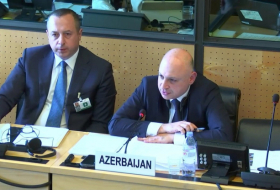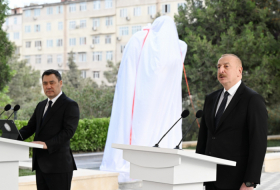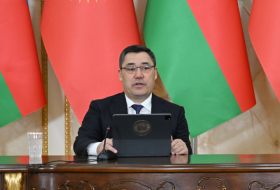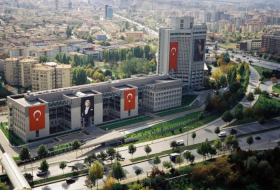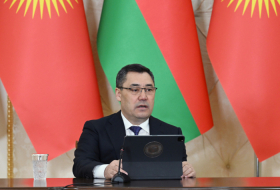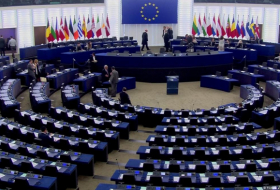The novel, called Kim Ji-young, Born 1982 was published in 2016 and sold more than a million copies.
It tells the story of an ordinary 30-something Korean woman juggling work and family, and the gender discrimination she faces at each phase of her life.
The book was hailed by some as one of the most important feminist novels in Korean - but led to an outcry from anti-feminists in the country.
And now, with the film's release, those arguments are being revisited.
Kim Ji-young is one of the most common Korean names of the generation, and thus represents any Korean woman.
The book, written by Cho Nam-joo, a television scriptwriter, tells her story from birth to motherhood from the perspective of her male psychiatrist.
When she is born, into a typical patriarchal family, her mother apologises to her mother-in-law for having a girl.
As she goes to school, gets a job, gets married and has a baby, Ji-young faces deep-rooted gender discrimination at every stage.
Image copyrightLOTTE ENTERTAINMENTImage captionA scene from the movie
Although South Korea is economically one of the most advanced countries in Asia, it remains socially conservative.
So much so, that female singers and actresses who said they read the book were attacked and bullied online.
Those who criticise the book say it presents distorted views, is highly subjective, and makes negative, sexist generalisations against men.
The male characters, they say, are portrayed as either actively or passively endorsing a culture of discrimination against women. Critics also argue it aggravates gender conflicts.
When the movie was first announced, those tensions were stoked again.
Actress Jung Yu-mi, who was cast as the lead, got thousands of hate comments on her Instagram in just a day; there was a petition asking the president not to allow the release of the movie; and people flocked to web portals to give bad ratings, even before the film was released.
'Discrimination, exclusion and violence'
Asked why the novel resonated so strongly with Korean women, Lee Na-young, sociology professor at Chung-Ang University in Seoul, told the BBC the "timing [of the novel] was remarkable".
It came out in autumn 2016. Months earlier, a young woman was murdered near Gangnam metro station in Seoul in a hate crime.
The murderer testified in court that "he had been ignored by women a lot and couldn't bear it anymore so committed the crime".
This incident - along with sexual violence accusations against key figures in literature and the entertainment industry - were considered by many as the key triggers behind the massive #metoo movement that took over the country in 2018.
"The book is not about someone special or a particularly miserable woman, but it's about any woman," Prof Lee said.
"It follows Kim Ji-young's life cycle and along the way one detects discrimination, exclusion and violence. And it hurts."
Prof Lee said the feminist movement in South Korea following the Gangnam murder was also led by "regular women".
"They're not women's rights activists but simply women who sympathise with the victim," she said.
"First they mourned for her. And then they identified with her, thinking they too are in danger [of such hate crime].
"And [then] they realised the correlation between the source of their fear and the discrimination they experience, and declared they won't just do nothing about it."
Prof Lee said the book struck different chords with women of different age groups.
Korean women in their 30s, like protagonist Kim Ji-young, were told they could do it all. So they grew up studying hard, working hard and playing hard. But reality set in as their careers progressed.
Women in South Korea earn only 63% of men's salaries - one of the highest pay gaps among developed nations. The Economist also ranks South Korea as the worst developed nation in which to be a working woman, in its glass ceiling index.
In September, Jeong Kab-yoon, a male conservative lawmaker, grilled a female candidate, Joh Sung-wook, in a confirmation hearing for the chair of the Fair Trade Commission.
He questioned why she had not married or had children - saying she failed to "contribute to national development".
In Seoul: confirmation hearing for Chairman of Fair Trade Commission a congressman said to candidate.
“ You’re still single, right? The biggest problem of our country is the low birth rate. You have a distinguished career but you should be responsible to your country too.”
Kim Ji-young, Born 1982 also highlighted the treatment women face when they do choose to have a baby.
In one scene, the protagonist spills coffee because of her baby in a coffee shop and people around her whisper to each other that she is a "mum-roach".
The term merges "mum" and "cockroach" and refers to mothers who lack manners in public spaces.
It was also around this time that some trendy cafes and restaurants designated themselves as "no-kids zones" to stave off these mothers.
BBC
More about: Korea









